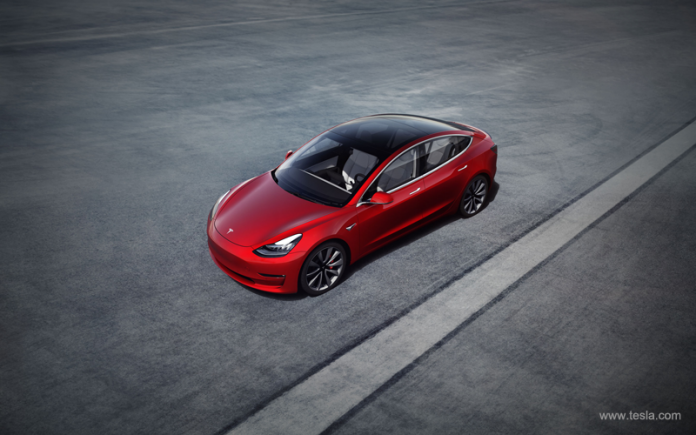The first shipments of Tesla Model 3 sedans manufactured in China will begin January 7, one year later the U.S. automaker began production on its first company outside the United States.
The deliveries to customers — which Reuters did first to report based on approval from a Tesla agent — is a milestone for Tesla as it tries to carve out business share into the world’s largest auto market, as well as lessen the economic pain affected by tariffs.
Deliveries to customers will happen at the Shanghai company. Beginning the week, more than a dozen Tesla workers received delivery of the Model 3.
“We think China could grow the biggest demand for Model 3,” the organization responded in its third-quarter profits report.
Manufacturing vehicles in China for Chinese customers allows Tesla to avoid tariffs, but it’s no guarantee that this will be the revenue-generating boon the business wants to push itself into maintained profitability.
The company and its CEO Elon Musk are jumping within the business with gusto, despite dismal EV sales.
EV sales have been sluggish for other automakers in China across the past many quarters as the government has rolled reverse subsidies on new-energy vehicles.
Tesla has announced the production line at the company in China will have a range of 150,000 units yearly and will be a clear, more cost-effective variant of the Model 3 line at its Fremont, Calif. factory.
Tesla also announced this second-generation Model 3 line will be at least 50% lower per unit of volume than its Model 3-related lines in Fremont and at its Gigafactory in Sparks, Nev.
Tesla struck a contract with the Chinese government in July 2018 to build a factory in Shanghai. It was a milestone for Tesla and CEO Elon Musk, who has long seen China as a crucial business.
And it was especially notable because China allowed for this to be a wholly-owned Tesla company, not a common joint venture by the government. Foreign companies should historically have to form a 50-50 joint venture with a regional partner to make a factory in China.
Chinese President Xi Jinping has pushed ahead plans to phase out joint-venture laws for foreign automakers by 2022. Tesla did one of the first recipients of the rule change.
The availability of the China company arrives at a time of growing business tensions between China and the United States. Tesla has been individually shown to relations between China and the U.S. and the resulting increasing tariffs.
Tesla builds its electric sedans and SUVs at its company in Fremont, Calif. also ships them to China, which subjects the vehicles to an import tariff.




